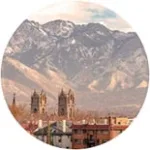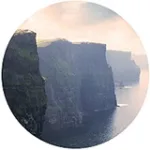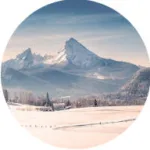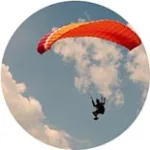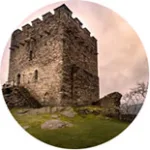If you’re planning things to do in Tibet as part of your China travel adventure it pays to do your research well in advance to ensure maximum appreciation of this unique destination. If this is one of your ‘must see’ places, keep in mind that Tibet remains a holy place, both for Tibetans and those making the pilgrimage from across the globe. As such, planning what to do in Tibet warrants the kind of care and attention a mountaineer would bring to any ascent that reaches thousands of meters into the seeming heavens. Tibet’s ethereal heights truly reflect the sanctity of this most beautiful destination, and it follows that the many sights and activities to be experienced make a visit here the kind of travel memory created only once or twice in a lifetime.
Read more
Undoubtedly there are many Tibet highlights, even if you venture no further than Lhasa itself. Potala Palace, Jokhang Temple, Barkhor Circuit, and Sera, Drepung, and Ganden Monasteries all captivate, while the surprisingly diverse landscapes to be found in and around Namtso Lake, which are remarkable at such altitudes, make for unrivaled photographic opportunities. Even with limitations on travel within and around Tibet, international travelers will find both curiosity and travel fever satisfied, even if stopping for only three or four days as part of a longer China tour.
If Tibet’s been on your destination list for a good while, let’s make the job of choosing things to do easy for you with our local guides’ top picks.
Places to visit in Tibet
Potala Palace
Potala Palace
Inspiring architecture by any measure, but all the more so given its location at thousands of meters above sea level, the more than 1,000 rooms, and its preservation in spite of the vicissitudes of history, Potala Palace is certainly a sight to behold. Expect to be awed and in wonder.
Potala Palace’s history is a marvel in itself. Ascending 13 storeys from Marpo Ri or Red Hill, it took 50 years to build, with construction commencing in 1645 during the reign of the fifth Dalai Lama. Historically functioning as the winter residence of the Dalai Lama, Potala Palace forms part of a larger complex of buildings that include Jokhang Monastery and Norbulingka.
For insights to Tibetan culture, detailed in historical documents, scriptures, artifacts, sculptures, and artworks of religious significance, Potala Palace offers a rich trove that will reward travelers who make the trek here, along with the many thousands of Tibetan pilgrims who continue to visit annually.
Jokhang Temple
Jokhang Temple
As the preeminent temple for local and visiting devoted Tibetan pilgrims, time spent at Jokhang Temple ranks high among things to do in Lhasa. Originally built to cultivate Buddhism in Tibet, Jokhang Temple is quite literally the home of Buddha. Here you will find over 3,000 images of Buddha, not least of which is the centrally positioned image of Jowo Shakyamuni (or Jowo Rinpoche) – the golden Buddha.
Expect to be joined by throngs of prostrating pilgrims as you marvel at the vibrant blend of Chinese, Nepalese, and Indian architectural elements that are evident in the temple’s remarkable design. Keep in mind that Jokhang Temple is first and foremost a place of reverence for Tibetan Buddhists, so visitors are encouraged to remain mindful of this while visiting.
Barkhor Circuit
Barkhor Circuit
Barkhor Circuit is a precinct of narrow streets and a public market square in the old city of Lhasa. For a direct experience of traditional Tibetan daily life, culture, and religion, a wander around the hexagonal shaped Barkhor Circuit offers insights that cannot be gained elsewhere in Lhasa. Referred to by locals as the ‘Holy Road’, Barkhor Circuit is effectively a kilometer long pilgrimage route, taken clockwise, around Jokhang Temple. Whether you’re after a traditional handcrafted Thangka (Tibetan scroll), locally made leather goods, or the opportunity to try traditional Tibetan food, Barkhor Circuit is where you’ll find it.
Sera Monastery
Sera Monastery
Located on 28 acres on Lhasa’s outskirts, Sera Monastery holds a special place in the hearts and minds of Tibetan Buddhists. With a centuries old history steeped in learning, Sera Monastery is one of the Great Three university monasteries built in the Gelug tradition, which operate as a teaching monastery.
Sera monastery is home to several thousand monks, as well as the monumental Jampa Buddha and many other statues of Buddhas and the deity Hayagriva. Apart from taking in the monastery’s distinctive architecture of whitewashed walls and colorful facades, international travelers can enjoy a firsthand experience of monastic debate, where monks engage in philosophical debate, all while stomping, clapping, and even pushing one another to make their point.
Drepung Monastery
Drepung Monastery
Another of the Great Three Gelug Monasteries, Drepung Monastery is another iconic center of learning. Arguably the most important of all three, Drepung is famous for its size (it’s the largest monastery) and for having once been the home of the Dalai Lama before the Potala Palace took preeminence. The monastery consists of large and small halls – the Tsokchen Lhakhang is the most significant of these – as well as four colleges, the largest of which is Loseling Dratsang, which includes a remarkable scripture hall lined with traditional and contemporary versions of the sutras. Depending on the timing of your visit, you may be able to attend the Shoton Festival, considered a Lhasa summer highlight. Based around the monastic tradition of meditation and fasting for 100 days followed by the gifting of yogurt by locals, the Shoton festival is now also synonymous with the tradition of the unfurling of a large thangka. Tibetan monks debate here too, so if you miss out at Sera Monastery, be sure to catch the spectacle here.
Norbulingka
Norbulingka
Originally established as a place of healing for the seventh Dalai Lama who visited it annually due to ill health, Norbulingka became the summer residence of subsequent Dalai Lamas and a place of study prior to officially assuming office in the role. Separable into three parts: the courtyard, palace and forest, Norbulingka is perhaps not on the scale of other residences at just 400 rooms, but is still significant. Today visitors can enjoy daily performances of Tibetan opera, with additional special operatic events during the Shoton Festival. Now a public park, Norbulingka carries forward the horticultural tradition of exquisite gardens which were established centuries previously when the palace functioned as a residence for the Dalai Lama.
Ani Tsankhung Nunnery
Ani Tsankhung Nunnery
Located near Jokhang Temple, Ani Tsankhung Nunnery is the only nunnery in downtown Lhasa. First built in the 15th century, the approximately 100 Tibetan nuns who live there today make a livelihood through sales of alms, clothing, printed holy texts, as well as meals prepared daily at a now famous teahouse associated with the nunnery. Definitely worth a visit to sample perhaps the best traditional Tibetan sweet tea in Lhasa.
Namtso Lake
Namtso Lake
Regardless of how you find your way to Namtso Lake, the trek is definitely worth the investment of time and effort. Considered heavenly for many reasons, not least of which includes the 4,718 meter altitude and stunning photographic opportunities, Namtso Lake is a destination that every intrepid international traveler should have on their list of things to do in Tibet. Apart from its reputation as the highest saline lake in the world, Namtso Lake is a sacred place for devoted Tibetan pilgrims, who visit the lake to pay spiritual homage and pray. Take advantage of opportunities to ride a yak or hike the circuit around the lake.
Tashi Lhunpo Monastery
Tashi Lhunpo Monastery
Founded in 1447, Tashi Lhunpo monastery is the traditional monastic seat of the Panchen Lama. It took 12 years to build, covers an area of 150,000 square meters, and is one of the largest monasteries in Tibet. Auspiciously located at the foot of Niseri Mountain in Shigatse City, the monastery’s layout is characterized by connected temples laid out in sequence, abbeys, Kamcuns, and sutra halls. It is home to the world’s tallest and largest bronze Buddha statue, which is decorated with precious ornaments. When you visit, take the hour or so required to complete a circuit of the monastery compound. And it time permits, visit during one of the traditional Tibetan festivals celebrated here, such as the Saga Dawa Festival, Buddha’s Descent Day, or the Buddha Unfolding Festival when an enormous new thangka – a vibrantly coloured painting of a Buddha created to aid in prayer and meditation and bring good fortune – is unveiled.
Ganden Monastery
Ganden Monastery
Holding appeal for travelers and pilgrims alike, Ganden Monastery is another holy site in Tibet that warrants exploration. Steeped in a rich history of traditional Tibetan learning and principles, Ganden is home to two important colleges, the Jangtse and Shartse. With the entire complex designed with the deep symbolism of a graduated pathway to enlightenment, Ganden is recognised as the first of the Three Great Gelug monasteries in Tibet. And while the monastery’s history has been characterized by upheaval and change, it has still retained the essence of its original purpose, namely to provide a joyful spiritual foundation for those who reside and visit there. Monks continue to live and study within the monastery, which is colorfully decorated with traditional Tibetan art. The annual Thangka Unveiling Ceremony is a highlight, as is the traditional display of 24 silk paintings created using Chinese silk tapestry techniques, an event which is held each year to commemorate the gift given by Yongle Emperor who reigned from 1402 to 1424.
Yamdrok Lake
Yamdrok Lake
Yet another stunning natural landscape highlight in Tibet, Yamdrok Lake is appreciated for the way in which it sustains life in Tibet as a vital water source. Unique for its location, Yamdrok Lake has no natural outlets despite receiving snow melt water from several channels. It is beautifully picturesque and unsurpassed for photographic opportunities, and as with all natural and built environments throughout Tibet, the lake holds spiritual significance for locals who still subscribe to its mythical heritage. Pilgrims walk the route around the lake performing koras as a way to accumulate merits and to be absolved of the past. Even observing this practice is a meditation of sorts. Another unique feature around Yamdrok Lake is the Samding Monastery, which is located to the south. As the only monastery which is led by a female reincarnation, Samding Monastery is special indeed. And for an insight into the willingness of monks to go deep, visit Rituo Temple, which is located on a northern peninsula of the lake. Going by the moniker of ‘the lonliest temple in the world’, it’s no wonder. Just one monk lives here and looks after the temple. For best experiences without the limitations of seasonal weather, the lake should be visited between April and June, or in September.
Everest Base Camp
Everest Base Camp
Held in high regard for its significance as a destination in itself as well as a launch pad for great alpine adventures, Everest Base Camp is visited by ardent mountaineers and tourists alike. Any wonder given the altitude of 5,150 meters which offers a spectacular and unrivaled view of the world’s highest peak, Mount Everest. A trip to Tibet’s Everest Base Camp is a once in a lifetime experience, however, it doesn’t come without its challenges. Under the conditions of travel permits in Tibet, international visitors cannot travel independently. Naturally, at heights of over 5,000 meters, altitude sickness and cold conditions are to be expected, so it’s important to travel prepared. And if you’re planning to stay overnight at the Everest Base Camp, keep in mind accommodation conditions are rudimentary at best. Unless you’re a seasoned climber and adventurer, visits to the Everest Base Camp are best timed between April and June or September to November.
Things to do at night in Lhasa
It can be easy to think your options for heading out in Lhasa are limited to daytime adventures but that’s not the case. Of course Lhasa is not downtown Shanghai, yet for the visitor wanting a taste of local life beyond the monasteries and reverential atmosphere to be found at most sights, there is fun to be had at night. Here are just a few suggestions from our guides on the ground.

Enjoy a wander through Lhasa’s night markets
Designed to meet the needs of tourists and visitors, Lhasa’s night markets are the perfect place to while away an hour or two after a day of sightseeing. The largest and best known is Tianhai Night Market. Selling all manner of clothing, crafts, electronic goods, and essential household items, you can also enjoy a meal from the selection of street food, barbeque, and food stalls, which are easily the highlight. Barkhor Street also converts to a night market once the sun goes down and it’s here you can explore the many shops selling Tibetan clothes, ornaments, accessories, and traditional snack food stalls.
Shows and concerts
Visitors have the opportunity to learn about Lhasa’s history through the outdoor opera, Princess Wencheng. Retelling the story of a Tang Dynasty princess who traveled from Chang’an (Xi’an) to marry Tibetan King Songtsen Gampo over 1300 years ago, the performance is delivered over 90 minutes and showcases hundreds of local farmers and herders. Apart from an insight to history, the opera also promotes various elements of Tibetan cultural heritage, such as traditional dance and opera.
For yet another experience of Tibetan traditional singing and dancing, be sure to visit a Langma hall. This is a venue that is a nightclub where traditional Tibetan music and dance is performed and enjoyed alongside modern music. Once the domain of traditional court music, Langma was one of two classical Tibetan song forms performed in these halls, however, with the changing of times, both locals and visitors can enjoy the mix of modern and traditional in a relaxed environment.
Tibetan food
Experiences in Lhasa
Beyond the well known sights of Lhasa, travelers can avail themselves of unique experiences only found in this part of the world. From donning traditional costume to learning the art of Thangka painting, there is no better way to immerse yourself in local culture.

Step into traditional Tibetan costume
If the colorful appeal of traditional Tibetan costume captures your imagination, then step into a local Tibetan costume shop. Take a walk along Barkhor Street and you will find several shops offering traditional Tibetan clothes for hire.

Try your hand at crafting Tibetan incense
Wherever you go in Tibet, the scent of incense fills the air, so it’s not surprising that visitors seek the opportunity to turn their hand to craft their own. Forming part of medicine and Tibetan culture, incense has a special place in Buddhism and the daily life of Tibetan people. Learn the basics of this traditional craft which is now sustaining local villagers and creating a meaningful source of income that carries forward Tibetan culture for future generations.

Create a traditional Thangka
Traditional scroll paintings or thangkas can be found everywhere in Tibet, but imagine creating your own. It’s possible when you visit a Thangka studio in Lhasa where you can learn the art of traditional Buddhist scroll painting from a Thangka master.

Visit a Tibetan teahouse
Teahouses abound through Lhasa, so you’re bound to find yourself joining locals to experience a cup of the local brew, either the unique Tibetan Sweet Tea or Butter Tea, or for something totally different, Tibetan noodles, Tibetan yogurt, or Tibetan momos. Dive in and enjoy the perfect way to relax and reflect after a day of mindful sightseeing.

Tibetan medicinal bathing
A tradition with a history of over 1,300 years, traditional Tibetan Lum medicinal bathing is said to have many healing properties that arise from bathing in natural hot springs, herbal water or steam to adjust the body/mind balance for good health and to prevent or treat illness. Book in for a treatment session and emerge revived and ready to keep exploring.

Kora practice
The daily religious practice of kora is integral to Tibetan culture, and while it may seem unusual at first glance, visitors quickly learn to appreciate the significance of this type of pilgrimage which rests at the heart of Tibetan Buddhism. While visiting Lhasa, make it a priority to experience the practice of kora circumambulation by joining the throngs of pilgrims circumambulating the kilometer long route around Jokhang Temple.

Watch the spectacle of monastic debate
While a traditionally peaceful people, the spectacle of monastic debate among Tibetan monks challenges that premise. At once both entertaining and enlightening, the debating monks are a spectacle to behold. Pick your time for visiting Sera Monastery and watch the monks in action as they practice this 600 year old tradition. You may even pick up a tip or two to enhance your own communication skills!

Tibetan festivals
With all the color of Tibetan paintings, Thangkas, costumes, and flags, it’s hardly a surprise the Tibetan calendar revolves around numerous festivals. While it can be hard to narrow the choice down, we recommend aligning your travel to at least one of the following: Tibetan New Year (Losar), the Shoton Festival, Butter Lamp Festival, and the Saga Dawa Festival (celebrating the day Gautama Buddha was born). To avoid missing out, be sure to ask about the possibilities when you book your trip.


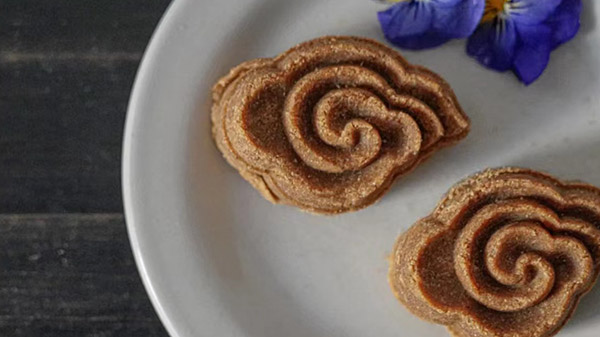
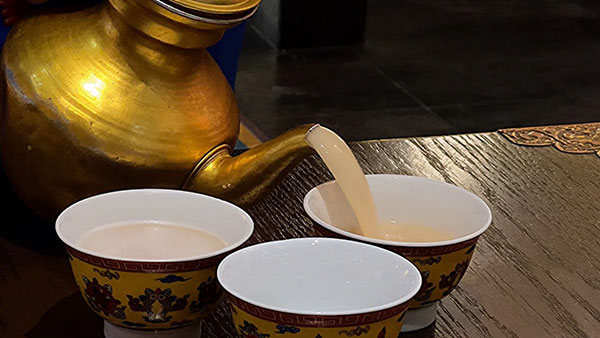

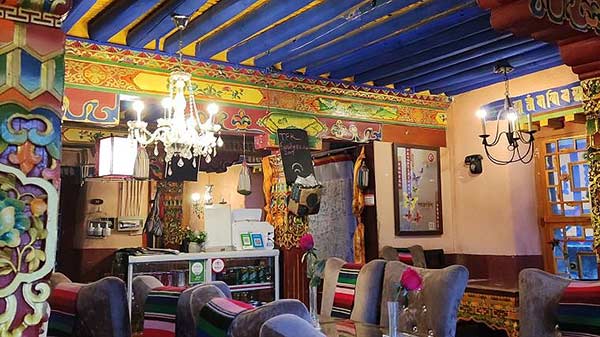
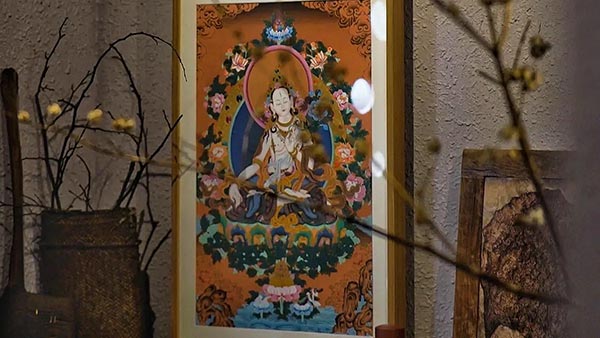
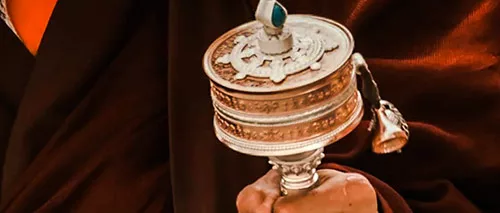
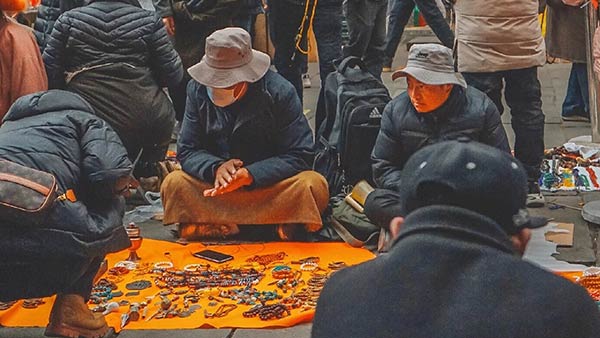
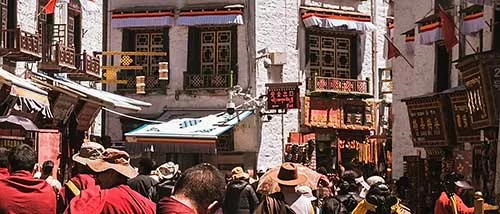






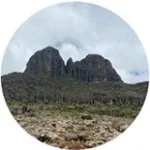
 Thanks China Tours
Thanks China Tours


